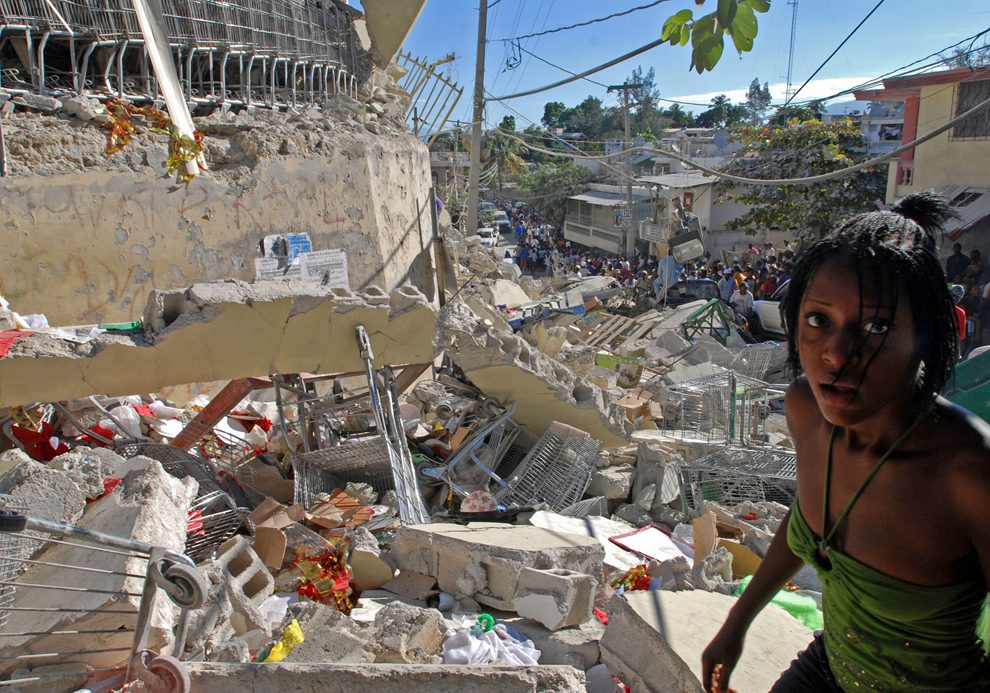Why is Haiti so Poor?

Haiti, American Immigration Policy, and Lucy and Charlie Brown
People my age know the cartoon Peanuts, and the oft-repeated scene where Lucy promises to hold a football for Charlie Brown to kick. Then Lucy pulls it away, just as Charlie Brown kicks it; Charlie Brown ends up on his back. They Lucy coaxes him to try again. Then, good-natured Charlie Brown tries to kick the ball and again ends up on his back.
I feel that way about my dashed expectations of American Presidents. If I were a Black or brown person living here, I don’t know if I could get the gumption to vote for any of them. The only difference I see between Donald Trump and Barack Obama and Joe Biden, when it comes to immigrants coming through Mexico, is that the first person on the list was cruel and seemed to enjoy the pain of others. All three are doing grossly little to address humanitarian crises at our doorstep.
I feel for Joe Biden. He is getting crap from the Right that immigrants are coming because they expect better from him, and he is getting crap from the Left because his policies are just a bad as his predecessor. I feel stupid for being disappointed. I should not have had any hope of kicking that football.
When Haitians coming through Mexico were sent back to a disaster area back home, I found myself feeling like I was lying on my back, football unkicked again, wind knocked out of me.
Getting Curious about Haiti
I went to college in New York. There were Haitian people living in my dorm and going to classes with me. But, I was young and my head was up my… so I didn’t learn much about their history beyond fried plantains and cool rice dishes.
By a series of events in my life, I ended up near Boston. It happens to be where the third biggest population of Haitians and Haitian-Americans live (after Florida and New York). Because I grew up a little in those 10 years, I got curious about Haiti’s history. Why was it so poor, compared to the Dominican Republic right on the other side of the island?
Let’s talk about Haitian History
I was in my 30’s before I learned that the first successful slave rebellion took place in Haiti by 1804. It consisted of several rebellions, starting in 1791, where Black Haitian leaders allied with European powers, and where European powers broke their word to Haitian leaders. Here is a timeline.
I was in my 40’s (maybe 50’s) before I learned that Haiti paid reparations to France for loss of “property” when the slaves freed themselves. European powers and the United States participated in the pressure to get Haiti to agree to these reparations in 1825. They were paid off in 1947. The reparations paid to France would be about $21 billion dollars in 2017 dollars. [source]
If Haiti had had access to that money, when it was a new and growing nation, imagine how much better off it would be. If France returned that money now, imagine what Haiti could become.
Get it Out of Your Head that Haiti Can’t Help Itself
Back to Haiti today. Why is there a crisis there?
An earthquake hit (again). Haiti suffers earthquakes and it is also vulnerable to hurricanes. When outside help comes into a disaster area, they often bring their own workers. Those outsiders have to be fed and housed in order to do their job of feeding and housing the people trying to survive in the disaster area. They have to learn to use the existing infrastructure. Then, when the relief workers leave, they do not leave behind people trained to continue the rebuilding, they do not leave behind funds to pay people to continue the rebuilding.
This doesn’t just happen in Haiti after a hurricane or earthquake. It happens throughout the world.
A better way to help people in disaster areas is to empower (and fund) people with existing ties to the community. That speeds everything up immediately after the disaster. It leaves behind structures that make the community resilient and more ready for the next hurricane or earthquake, or less severe damage to homes, businesses, and infrastructure.
Beyond disaster relief, communities are best served by local knowledge of what is needed to improve public health and disaster resiliency. Sewer systems, drainage, levies, clean water supplies and other public works have eradicated infectious disease all over the world; cholera and other water-borne disease for example.
Local people have the inside track on how their development project will do the most good in their location. Some places need erosion control to improve food production, some need fire prevention, some need earthquake-resistant building. These projects work better when they are designed to serve the needs of the people there, rather than a one-size fits all project funded by people who have never lived there.
What We Can Do
In Haiti, community based service organizations exist. Haitian and Haitian-American people have developed systems for getting relief to people there more quickly because they have help on the ground there. Outside workers don’t know what is needed without having local leaders to guide them. Relationships matter. That’s why I admire Marie-Rose Romain Murphy and her years-long effort with ESPWA (Economic Stimulus Projects for Work and Action).
Haiti doesn’t seem to get a break. Not from European powers, the US, or Mother Nature. Please support ESPWA now. The people of Haiti need you.